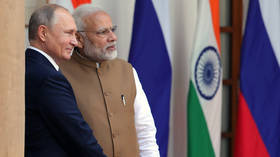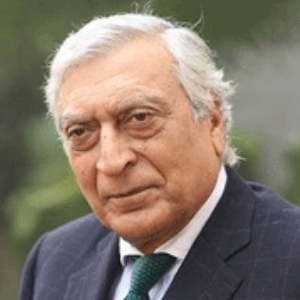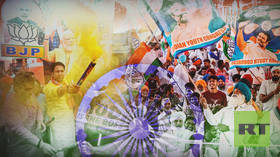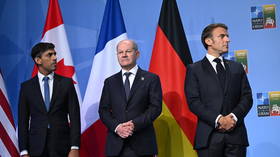Modi’s Moscow Mission: What the Indian PM’s visit to Russia signals to the West

Indian Prime Minister Narendra Modi’s decision to visit Russia almost immediately after beginning his third term in office sends many diplomatic signals. The core message is that India continues to attach great importance to its ties with Russia, notwithstanding the collapse of Moscow’s ties with the West over the conflict in Ukraine, New Delhi's own increasing closeness to the US, and the importance it attaches to its ties with Western Europe.
We have come under pressure from our Western partners to reduce our ties with Russia, which we have resisted. We have maintained a high-level dialogue with Russia though the practice of annual summits has got disrupted. We have refused to apply Western sanctions though these have hampered our bilateral financial transactions. On energy, we have, in fact, expanded our oil trade with Russia to the point of Russia becoming our largest oil supplier.
The unique feature of our ties with Russia had been these annual summit meetings since the year 2000. The last such summit was in December 2021 when Russian President Vladimir Putin travelled to New Delhi. The Covid pandemic and Russia’s pre-occupation with the Ukraine conflict interrupted this practice.
Putin did not attend the G20 summit meeting last year, nor did he attend the G20 summit at Bali either. He has also prevaricated on the question of his attendance at the next G20 summit in Brazil.
Some misgivings in political circles arose because of the delay in resuming the summit meetings, especially with Modi’s highly publicised interactions with President Biden and European leaders such as Macron. These gave greater visibility to our relations with the West at the top leadership level and contrasted with a reduced exposure to our ties with Russia.
Our media has also contributed to the perception of a dilution of our ties with Russia by purveying the western line on the conflict in Ukraine. Reports from western agencies have been reproduced routinely. Think tank events have heavily featured western leaders who have used the platforms to attack Russia on our soil. The Russian presence at these events has been minimal.
External Affairs Minister Jaishankar’s visit to Russia in late December 2023 when he exceptionally called on President Putin indicated an effort to remove misgivings that India-Russia ties were waning politically. At the meeting Putin issued an invitation for Modi to visit Russia and Jaishankar subsequently indicated publicly that this visit would be on the cards in 2024.
Normally the India-Russia annual summit is held towards the later part of the year, which is not the most congenial time for a summit in Moscow because of cold weather conditions but is the most congenial time for a summit in India because of cooler weather here.
In the present instance, both sides seem to have considered it opportune to promptly convey a political message that ties at the bilateral level, and in the context of tense geopolitical realities, remainn important for both sides. Modi and Putin could have waited for the BRICS summit in Kazan in Russia in October this year to also hold a bilateral summit but have consciously chosen not to.
Modi attended the G7 summit in Italy days after he was sworn-in as Prime Minister. It was important that he attended as his absence could have been misconstrued as a lowering of his profile, and indeed that of India, after his election setback at home. The Western press have gloated at the “humbling” of Modi.
Modi rightly wanted to convey to the G7 leaders and to the Indian public that it would be business as usual on the external front, that the failure to secure an absolute majority in the national election had no bearing on the conduct of India’s foreign policy. It was necessary to convey a sense of confidence and self-assurance in his formal statement at the G7 outreach meeting as well as in his interaction with individual group leaders, who, as it happens, are politically much more seriously contested at home, whose popularity ratings are lower, with some heading minority governments and some who are slated to lose power in the next elections.
Modi clearly wanted to balance his participation of the G7 summit on the heels of his re-election with a summit meeting with Putin notwithstanding his busy political agenda at home.
Whether his decision was influenced by a recognition that powerful lobbies in the West would prefer a weaker leader at the helm of Indian affairs, which might explain the orchestrated political campaign against him prior to and during the elections in Western media, think tank, academic civil society and even political circles, in what constituted a clear interference in our election process, is a matter of speculation.
He may have wanted to negate any perception that a weaker government at the national level and a stronger opposition at home would make India more vulnerable to Western pressure by signaling that India’s foreign policy course, its determination to preserve its strategic autonomy and pursue a policy of friendship with all, to best protect India’s national interest, would continue.
Modi will not be attending the SCO summit on July 3 as the parliamentary session in India will still be on. India has clear stakes in the SCO – and cannot yield strategic space in it to its disadvantage. The Deputy Secretary General post in the organisation is now held by an Indian. But the timetable is problematic. By visiting Russia a few days later Modi is partially compensating for his absence at the SCO summit, as Russia is a major pillar of the organization.
Modi’s early visit to Moscow is important also in the wider context of BRICS expansion. The BRICS summit in Kazan in Russia in October this year will decide on the group's expansion. India must have a strong say in the process as an original BRIC member. Purely geopolitical considerations, in the context of the sharpening North-South and East-West divides should not lead to including all-comers.
A consensus on objective criteria for expansion is in the best interest of the group and its objectives. This is a delicate exercise as some countries seeking membership are part of a military alliance or oppose transit and trade with specific countries, or have known terrorist affiliations.
Modi’s Moscow visit, in sum, has important bilateral, regional and international dimensions.
The statements, views and opinions expressed in this column are solely those of the author and do not necessarily represent those of RT.
















